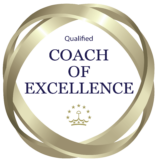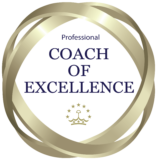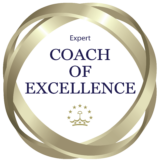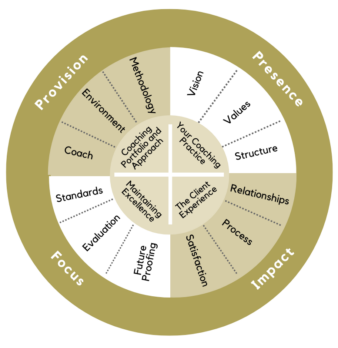2022 Global Consumer Awareness Study
Launched in 2018, Coach of Excellence was created by the esteemed CPD Standards Office (CPDSO), evolving from the ‘CPD Coach’ accreditation, one of the founding CPDSO accreditation services.
It was developed through research and consultation with experienced coaches and market leaders, who coach in a wide variety of industries and levels of seniority.
Today, the Coach of Excellence accreditation captures the ever-growing and changing landscape of the coaching profession over the past decade.
It is a prestigious accolade awarded to professional coaches in recognition of high quality, excellent coaching provisions and verifies tangible impact to both individuals and organisations.
“I’ve got a coach, but how do I know I’ve got a good one?”
The Coach of Excellence accreditation is an international, public signpost that a coach that has completed a robust, scientific and independent assessment process and achieved a set of standards and third party benchmarks. It provides reassurance that a coach consistently delivers outstanding coaching experiences to their clients – either as an independent coach, or an internal coaching colleague employed within an organisation.
The accreditation is delivered across three categories – Qualified, Professional and Expert – based on an individual’s experience, qualifications and achievements.




The Coach of Excellence accreditation methodology is a unique process rooted in evidence-based research. Coaching is both an art and a science, and we have studied its practice for over a decade. There are many ingredients which make a great coach. Our assessment process examines the four key pillars of coaching, with the aim of enabling coaches to go an extra step towards excellence.
1. Presence – Your coaching practice
2. Impact – The client experience
3. Provision – Coaching portfolio and approach
4. Focus – Maintaining excellence
The assessment process takes up to 8 weeks, and includes an online application with submission of key documents, followed by an interview with an assessor, and receipt of independent references.
Find out more and apply at www.coachofexcellence.com
The CPD Standards Office defines a coach as an individual who is trained and qualified to deliver coaching sessions to individuals on a one-to-one basis, or as part of a coaching programme to a group.
Overall, a coach provides guidance, support and expertise to enable individuals to achieve their professional goals, overcome barriers or challenges, or enhance skills and performance.
Coaches use a variety of coaching techniques and approaches to facilitate self-discovery and improvement, which then develop personal or organisational goals.
Types of Coaches:
Coaches can specialise in various areas, and their roles and expertise may differ accordingly. Some common types of coaches include:
Coach Accreditation & Criteria:
Coach accreditation is a formal process through which an individual receives an official recognition or certification and serves as evidence that specific criteria, standards, and competencies have been achieved.
All types of coaches go through the same assessment process, and the accreditation provides a guarantee and assurance that a coach has met an independent set of standards and will be delivering a professional and effective service.

CPD Standards Office MENA, we stand at the forefront of professional development, offering a trusted accreditation service that is revered by industry leaders, institutes, and professionals across the region.
via WhatsApp on +97156 1060 224 or email the MENA Region representative at aref.alabed@cpdstandards.com.